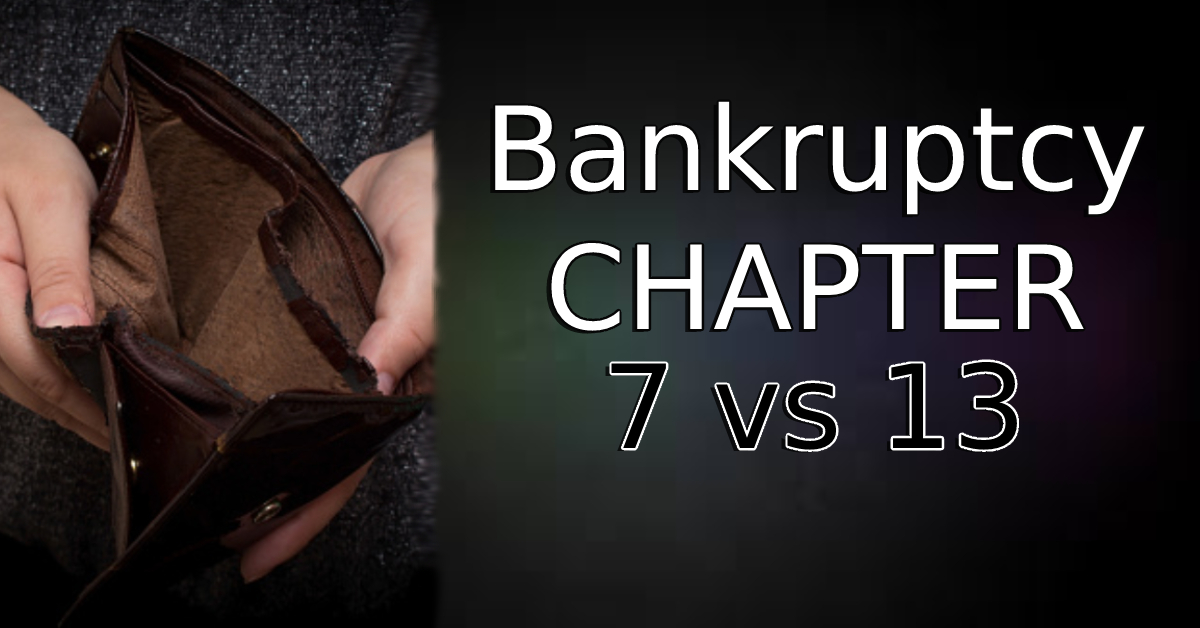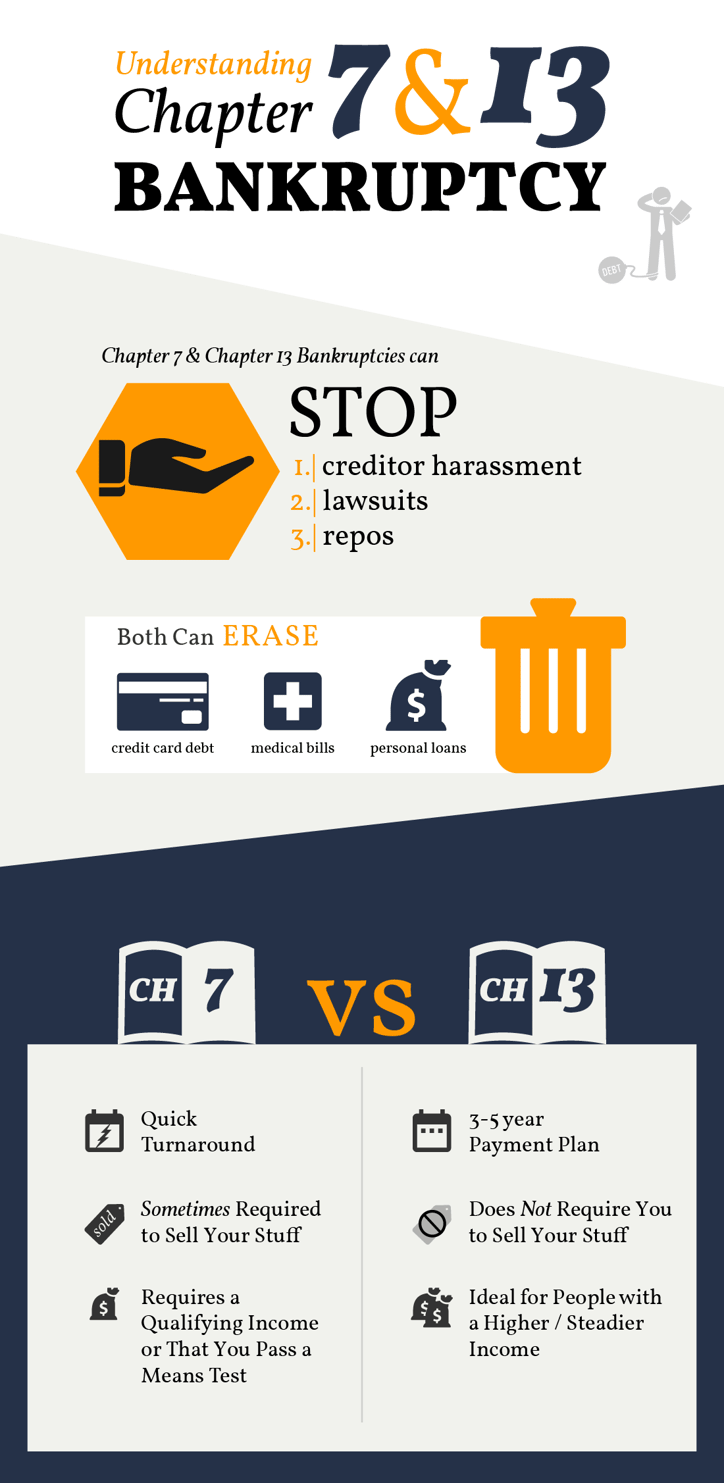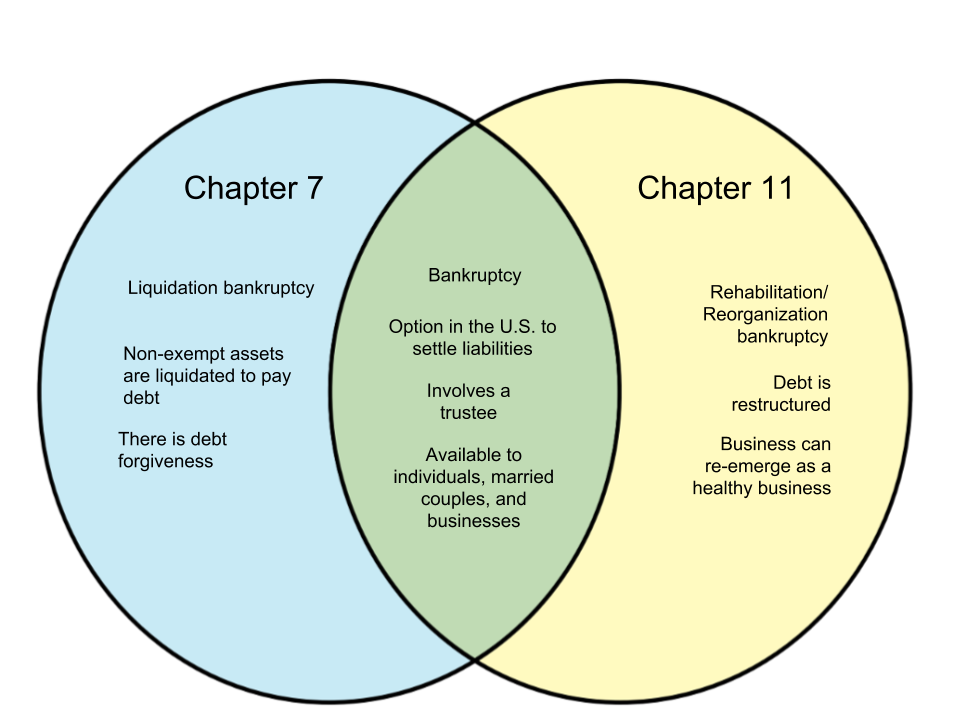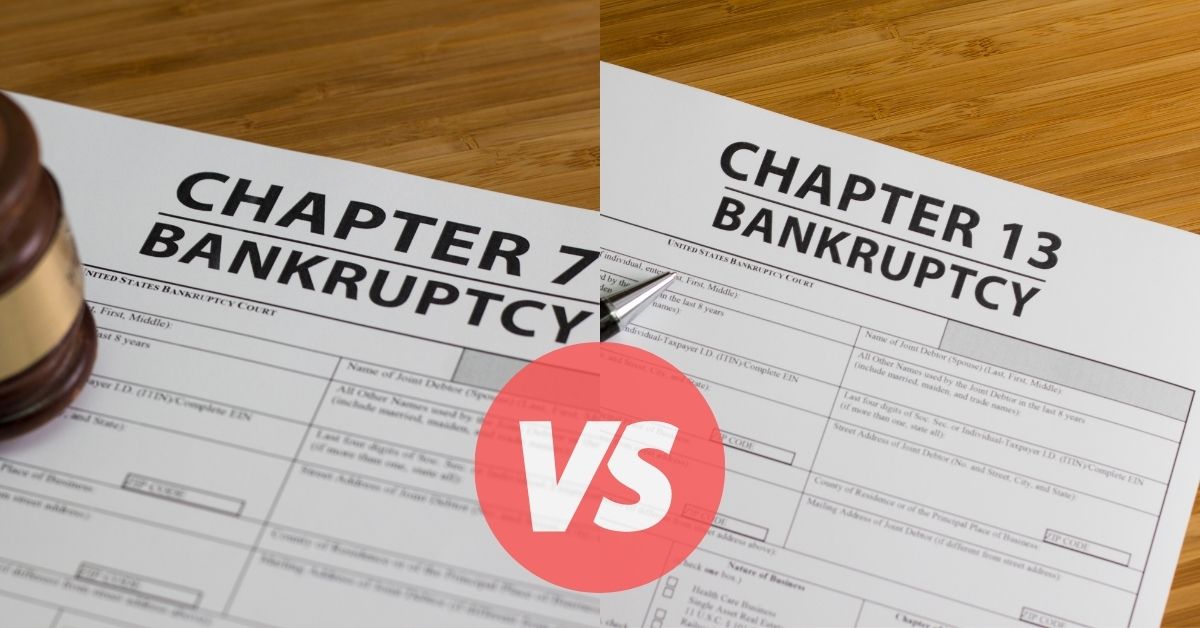What's The Difference Between Chapter 7 11 And 13
What's The Difference Between Chapter 7 11 And 13 - When filing for chapter 13, a debtor needs. In chapter 7 asset cases, the debtor's. If the court approves the plan of payment, the debts will be paid in full or partially by the chapter 13. In contrast, chapter 13 is a debt. Web chapter 13 enables individuals with regular incomes, under court supervision and protection, to repay their debts over an extended period of time according to a plan. Either way, filing for bankruptcy can help waive those away. Web chapter 7 vs. But there are different types of bankruptcies, and the most common ones are chapter 7, 11, and 13… There is no limit to the amount of money owed by debtors filing for chapter 11. In a chapter 13 proceeding, the debtor must pay all or part of his debts from the future income over a period of three to five years through his chapter 13 plan.
If the court approves the plan of payment, the debts will be paid in full or partially by the chapter 13. But there are different types of bankruptcies, and the most common ones are chapter 7, 11, and 13… Web emily norris updated june 21, 2022 reviewed by pamela rodriguez companies that find themselves in a dire financial situation where bankruptcy is their best—or only—option have two basic. For some people, the time period must be five years. This chapter of the u.s. Web the main difference between the two is the amount of money the debtor owes. Web child support or alimony student loans auto loans chapter 7 bankruptcy vs. In a chapter 13 proceeding, the debtor must pay all or part of his debts from the future income over a period of three to five years through his chapter 13 plan. Chapter 13 bankruptcy the biggest differences between chapter 7 and chapter 13 bankruptcy are what happens to your property and who qualifies financially. Web chapter 7 provides liquidation of an individual’s property and then distributes it to creditors.
The plan may call for full or partial repayment. But there are different types of bankruptcies, and the most common ones are chapter 7, 11, and 13… Web the main difference between the two is the amount of money the debtor owes. Web emily norris updated june 21, 2022 reviewed by pamela rodriguez companies that find themselves in a dire financial situation where bankruptcy is their best—or only—option have two basic. Web child support or alimony student loans auto loans chapter 7 bankruptcy vs. When filing for chapter 13, a debtor needs. Either way, filing for bankruptcy can help waive those away. In a chapter 13 proceeding, the debtor must pay all or part of his debts from the future income over a period of three to five years through his chapter 13 plan. Chapter 13 bankruptcy the biggest differences between chapter 7 and chapter 13 bankruptcy are what happens to your property and who qualifies financially. Web perhaps it was unsecured creditors like credit card companies.
Tampa Bankruptcy Chapter 7 vs Chapter 13 Galewski Law Group
In a chapter 13 proceeding, the debtor must pay all or part of his debts from the future income over a period of three to five years through his chapter 13 plan. Chapter 7 is designed to eliminate debt by liquidating assets. Web chapter 7 and chapter 13 are very different types of bankruptcy. This is because chapter 7 typically.
37+ Can I File Chapter 7 Before 8 Years KhamShunji
If the court approves the plan of payment, the debts will be paid in full or partially by the chapter 13. Chapter 13 focuses on restructuring debt to be fully or partially paid off over. [track latest developments in bankruptcy with bloomberg law.] chapter 7 bankruptcy and chapter 11 bankruptcy are both common options for businesses in declaring bankruptcy. But.
What's the Difference Between Chapter 13 and Chapter 7 Bankruptcy?
Web chapter 13 enables individuals with regular incomes, under court supervision and protection, to repay their debts over an extended period of time according to a plan. If the court approves the plan of payment, the debts will be paid in full or partially by the chapter 13. Web rescuing your business chapter 11 is generally the best way to.
What's the Difference Between Chapter 7 and Chapter 13 Bankruptcy?
When filing for chapter 13, a debtor needs. In chapter 7 asset cases, the debtor's. [track latest developments in bankruptcy with bloomberg law.] chapter 7 bankruptcy and chapter 11 bankruptcy are both common options for businesses in declaring bankruptcy. Web chapter 7 and chapter 13 are very different types of bankruptcy. Web child support or alimony student loans auto loans.
The Difference Between Chapter 11 and Chapter 7 Bankruptcy Ritter Spencer
Web the main difference between the two is the amount of money the debtor owes. If you are running a sole proprietorship, however, chapter 13. Web chapter 7 vs. Web chapter 13 enables individuals with regular incomes, under court supervision and protection, to repay their debts over an extended period of time according to a plan. But there are different.
The Difference Between Chapter 7 & Chapter 13 Bankruptcies
When filing for chapter 13, a debtor needs. If the court approves the plan of payment, the debts will be paid in full or partially by the chapter 13. Web some of the differences between chapter 7 and 13 bankruptcy include: The critical difference is that chapter 7 revolves around the liquidation of assets to repay debts. Rarely businesses —.
What's the Difference Between a Chapter 7 and 13 Bankruptcy?
Web perhaps it was unsecured creditors like credit card companies. This is because chapter 7 typically results in the liquidation of the entire company, and chapter 13 is not available for business entities. The critical difference is that chapter 7 revolves around the liquidation of assets to repay debts. Chapter 13 focuses on restructuring debt to be fully or partially.
Difference Between Chapter and Lesson Compare the Difference Between
Web chapter 7 vs. In a chapter 13 proceeding, the debtor must pay all or part of his debts from the future income over a period of three to five years through his chapter 13 plan. The plan may call for full or partial repayment. When filing for chapter 13, a debtor needs. [track latest developments in bankruptcy with bloomberg.
45+ Difference Between Chapter 7 And Chapter 11
In chapter 7 asset cases, the debtor's. This chapter of the u.s. Web some of the differences between chapter 7 and 13 bankruptcy include: If you are running a sole proprietorship, however, chapter 13. For some people, the time period must be five years.
Bankruptcy Chapter 7 vs 13 What is The Difference
The plan may call for full or partial repayment. There is no limit to the amount of money owed by debtors filing for chapter 11. This chapter of the u.s. Web emily norris updated june 21, 2022 reviewed by pamela rodriguez companies that find themselves in a dire financial situation where bankruptcy is their best—or only—option have two basic. In.
In Contrast, Chapter 13 Is A Debt.
Web chapter 7 vs. Web some of the differences between chapter 7 and 13 bankruptcy include: Web emily norris updated june 21, 2022 reviewed by pamela rodriguez companies that find themselves in a dire financial situation where bankruptcy is their best—or only—option have two basic. The critical difference is that chapter 7 revolves around the liquidation of assets to repay debts.
Web Rescuing Your Business Chapter 11 Is Generally The Best Way To Alleviate Your Liabilities Without Going Out Of Business.
Web chapter 7 provides liquidation of an individual’s property and then distributes it to creditors. In a chapter 13 proceeding, the debtor must pay all or part of his debts from the future income over a period of three to five years through his chapter 13 plan. When filing for chapter 13, a debtor needs. Web what is the difference between chapter 7, 11, 12 & 13 cases?
Web Perhaps It Was Unsecured Creditors Like Credit Card Companies.
But there are different types of bankruptcies, and the most common ones are chapter 7, 11, and 13… Either way, filing for bankruptcy can help waive those away. Web child support or alimony student loans auto loans chapter 7 bankruptcy vs. Chapter 7 is designed to eliminate debt by liquidating assets.
This Chapter Of The U.s.
Often called the liquidation chapter, chapter 7 is used by individuals, partnerships, or corporations who are unable to repair their financial situation. Individuals are allowed to keep “exempt property.” the courts may provide businesses that file chapter 7. In chapter 7 asset cases, the debtor's. There is no limit to the amount of money owed by debtors filing for chapter 11.









